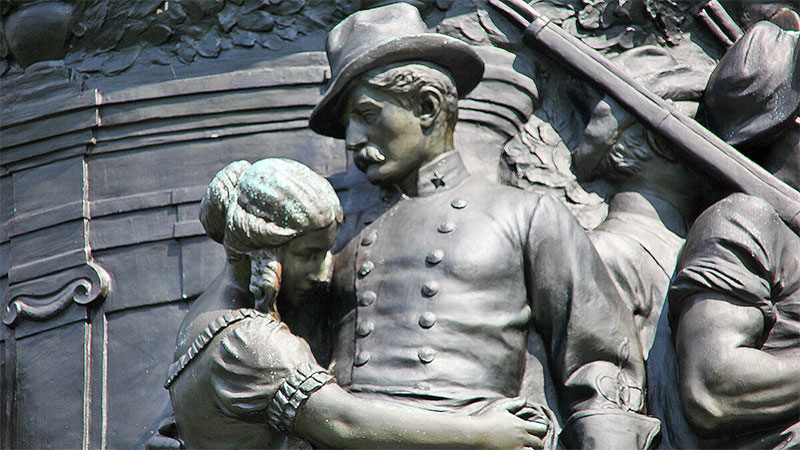Removing war memorials from military cemeteries is what happens when the bonds of civic life have all but disappeared. It’s a dangerous sign.
Amid the steady stream of horrible economic news this week you might have missed a rather bland headline from the Associated Press: “Panel advises removal of Confederate statue at Arlington.”
The news itself, that an independent commission charged with renaming U.S. military bases that bear Confederate names has recommended the Confederate memorial at Arlington National Cemetery be dismantled and removed, might seem painstakingly obvious these days.
Of course they want to get rid of the Confederate memorial, you might be thinking. In a post-George Floyd world, we have to reckon with our racist past and confront present-day white supremacy, which is apparently everywhere. Didn’t you know that Fort Bragg and Fort Hood, for example, are named after Confederate officers? That the USS Chancellorsville was named after a battle the Confederates won?
Confederates, we’re told, were all evil racist traitors, and the only reason there’s a memorial for them at Arlington is because other racists, who came later, put it up because they were mad about losing the Civil War and wanted to keep white supremacy going. And anyway, the only people who would object to renaming military bases and removing memorials are present-day racists whose opinions don’t count. Right?
That well-worn narrative, more or less embedded in the discourse at this point, not only distorts American history but obscures the deeper truth our history reveals, which is that we’ve become a deranged, small-minded, angry people. Removing war memorials from military cemeteries is what societies do when they’re imploding on themselves, when the bonds of civic life have all but disappeared along with any notion of a shared past, to say nothing of a common vision for the future.
It was not always this way. At the turn of the last century, our political leaders seemed to understand that the survival of a vast republic like ours depended on civic virtues like reconciliation, forgiveness, and actual tolerance. They knew this because many of them had lived through and participated in the Civil War. They had seen and felt for themselves what happens when a nation turns on itself, and they were determined not to let it happen again.
----------------
Read more HERE

















